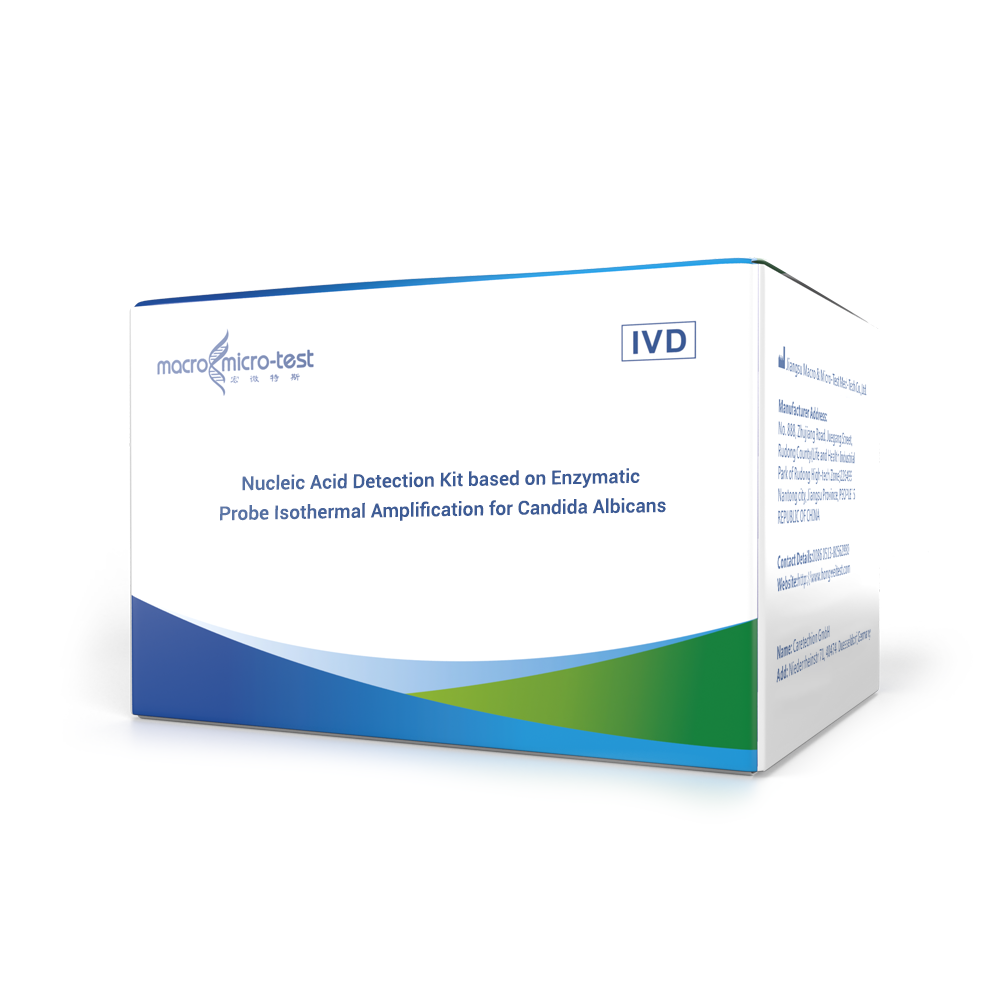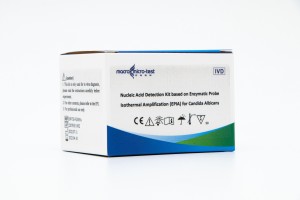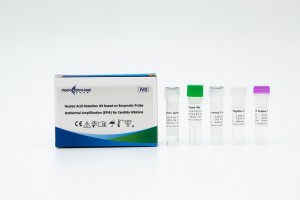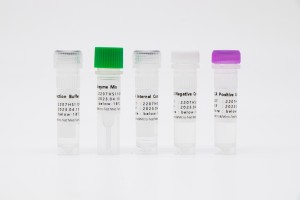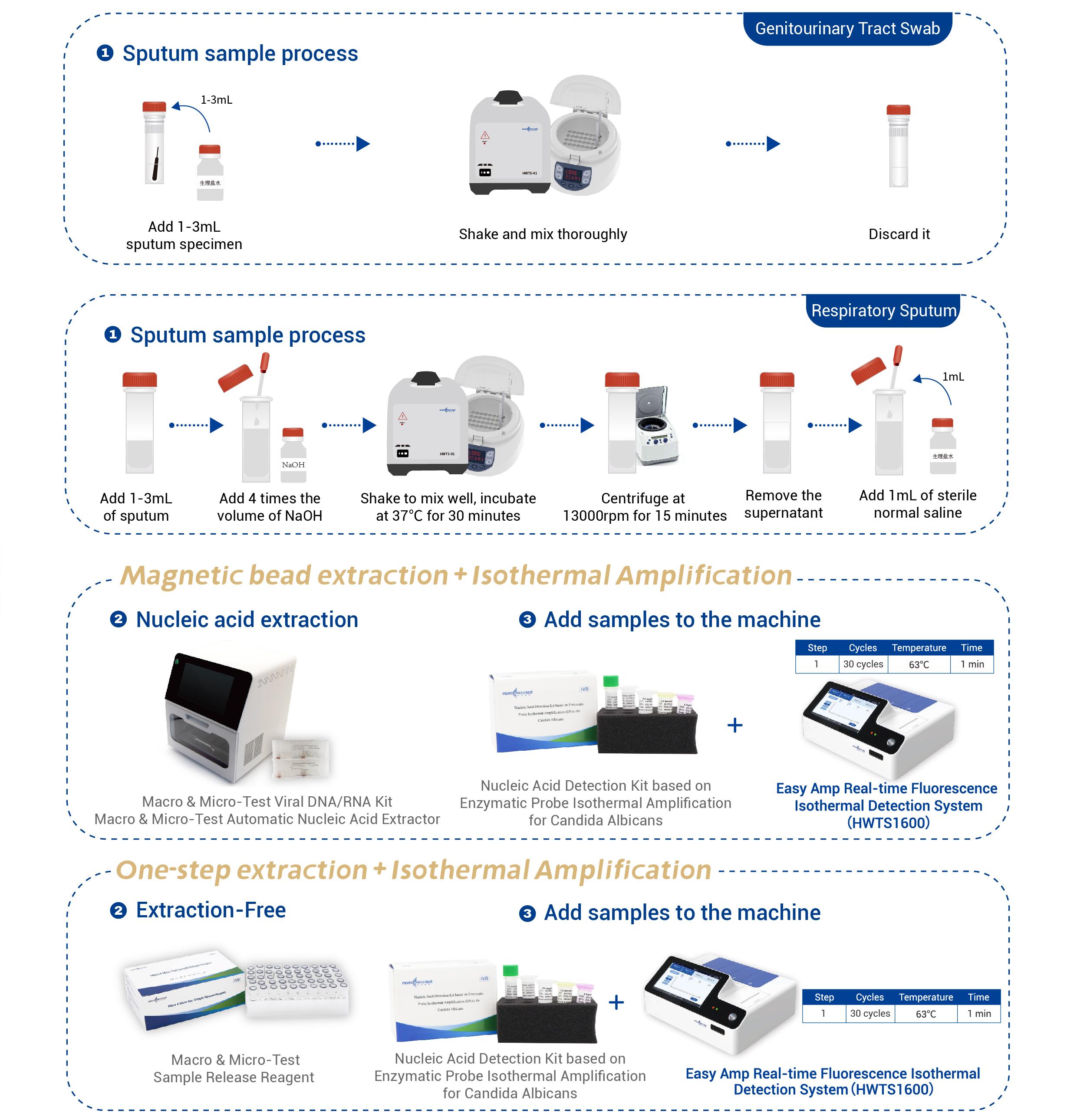Candida Albicans Nucleic Acid
Product name
HWTS-FG005-Nucleic Acid Detection Kit based on Enzymatic Probe Isothermal Amplification (EPIA) for Candida Albicans
Certificate
CE
Epidemiology
Candida species is the largest normal fungal flora in human body, which is widely present in the respiratory tract, digestive tract, genitourinary tract and other organs that communicate with the outside world. It is not pathogenic generally and belongs to conditional pathogenic bacteria. Due to the massive application of immunosuppressive agents, development of tumor radiotherapy, chemotherapy, invasive treatment, and organ transplantation, and the widespread application of a large number of broad-spectrum antibiotics, the normal flora becomes imbalanced, leading to Candida infections in the genitourinary tract and respiratory tract.
Candida infection in the genitourinary tract can cause women to suffer from candidal vulvitis and vaginitis, and cause men to suffer from candidal balanitis, acroposthitis and prostatitis, which seriously affect the life and work of patients. The incidence rate of genital tract candidiasis is increasing year by year. Among them, female genital tract candida infections account for about 36%, and males account for about 9%, and Candida albicans (CA) infections are the main ones, accounting for about 80%.
Fungal infection typical of Candida albicans infection is an important cause of death from nosocomial infections. Among critical patients in ICU, Candida albicans infection accounts for about 40%. Among all visceral fungal infections, pulmonary fungal infections are the most and they are increasing year by year. Early diagnosis and identification of pulmonary fungal infections has important clinical significance.
The current clinical reports of Candida albicans genotypes mainly include type A, type B, and type C, and such three genotypes account for over 90%. Accurate diagnosis of Candida albicans infection can provide evidence for the diagnosis and treatment of candidal vulvitis and vaginitis, male candidal balanitis, acroposthitis and prostatitis, and respiratory tract Candida albicans infection.
Channel
| FAM | CA nucleic acid |
| ROX |
Internal Control |
Technical Parameters
| Storage | Liquid: ≤-18℃ In dark; Lyophilized: ≤30℃ In dark |
| Shelf-life | Liquid: 9 months; Lyophilized: 12 months |
| Specimen Type | Genitourinary Tract Swab, Sputum |
| Tt | ≤28 |
| CV | ≤10.0% |
| LoD | 5Copies/µL, 102 bacteria/mL |
| Specificity | No cross-reactivity with other pathogens of genitourinary tract infections, such as Candida tropicalis, Candida glabrata, Trichomonas vaginalis, Chlamydia trachomatis, Ureaplasma urealyticum, Neisseria gonorrhoeae, Group B streptococcus, Herpes simplex virus type 2, etc; there is no cross-reactivity between this kit and other pathogens of respiratory infections, such as Adenovirus, Mycobacterium tuberculosis, Klebsiella pneumoniae, Measles, Candida tropicalis, Candida glabrata and normal human sputum samples, etc. |
| Applicable Instruments | Easy Amp Real-time Fluorescence Isothermal Detection System (HWTS1600)
Applied Biosystems 7500 Real-Time PCR Systems Applied Biosystems 7500 Fast Real-Time PCR Systems QuantStudio®5 Real-Time PCR Systems SLAN-96P Real-Time PCR Systems LightCycler®480 Real-Time PCR system LineGene 9600 Plus Real-Time PCR Detection System MA-6000 Real-Time Quantitative Thermal Cycler BioRad CFX96 Real-Time PCR System BioRad CFX Opus 96 Real-Time PCR System |

